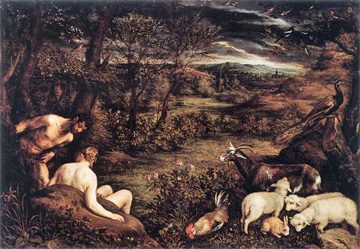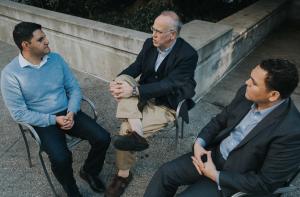A recent column in the New York Times gets many things right, and at least one thing very wrong. In “The ‘Busy’ Trap,” cartoonist and writer Tim Kreider laments our tendency to lament our constant busyness. He begins:
If you live in America in the 21st century you’ve probably had to listen to a lot of people tell you how busy they are. It’s become the default response when you ask anyone how they’re doing: “Busy!” “So busy.” “Crazy busy.” It is, pretty obviously, a boast disguised as a complaint. And the stock response is a kind of congratulation: “That’s a good problem to have,” or “Better than the opposite.”
According to Kreider, everybody claims to be busy, including children, who are “scheduled down to the half-hour with classes and extracurricular activities. They come home at the end of the day as tired as grown-ups.”
Kreider believes our busyness is not good. Nor is it inevitable. “The present hysteria is not a necessary or inevitable condition of life; it’s something we’ve chosen, if only by our acquiescence to it..”
Why are we so overbooked?
Busyness serves as a kind of existential reassurance, a hedge against emptiness; obviously your life cannot possibly be silly or trivial or meaningless if you are so busy, completely booked, in demand every hour of the day. . . I can’t help but wonder whether all this histrionic exhaustion isn’t a way of covering up the fact that most of what we do doesn’t matter.
Hmmm. Is this true? Is it true that “most of what we do doesn’t matter”? Or is this comment more of a confession by the author as to the value of his own life.
Kreider goes on to explain that his average day involves writing in the morning: “On the best ordinary days of my life, I write in the morning, go for a long bike ride and run errands in the afternoon, and in the evening I see friends, read or watch a movie. This, it seems to me, is a sane and pleasant pace for a day.” Now that does sound pretty good, I must say. But is Kreider suggesting that this kind of lifestyle is possible for others?
Kreider seems to equate hyper-busyness with work, and work with effort that has no intrinsic value. For this he offers a theological rationale:
The Puritans turned work into a virtue, evidently forgetting that God invented it as a punishment.

Oops. Now Kreider’s argument has run off the rails. I don’t know where he gets his theology, but it certainly doesn’t come from the Judeo-Christian tradition. Jews and Christians base their understanding of work on the opening chapters of Genesis. There, God is a worker who creates that which is good and, indeed, very good. God creates human beings in God’s own image, giving them work to be done. In Genesis 1, humans are to be fruitful and multiply, to fill the earth and use their authority to care for it. In Genesis 2, human work is captured in the image of tending the garden. Nothing in either of these chapters suggests that work is a punishment. Rather, it is part and parcel of God’s good creation. By working, human beings imitate God and contribute to the goodness of the world.
At least that was God’s intention. But in Genesis 3, things unravel. Human beings rejected God’s ways, preferring to run their own lives, or ruin their own lives. Sin wrecks that which God had intended for the world, including work. The woman will continue to labor by bearing children, but only with great pain. The man will continue to tend the garden, but now with difficulty because it will be filled with thorns and thistles. Genesis 3 does not teach that work is punishment from God, or even that the pain associated with work is a punishment from God.
So, Kreider’s assertion that God invented work as punishment reveals a double problem. His understanding of God and his understand of work are lacking. If he had done a bit of homework, actually reading Genesis 1-3, Kreider would have discovered that God set up an antidote to busyness in the very beginning: the Sabbath. Not only did God create human beings to do meaningful work, but also he created a day each week for rest, rest that entails much more than mere idleness.
If Tim Kreider were alone in his view that our work really doesn’t matter and that it is a punishment from God, I would probably not be griping. But, unfortunately, Kreider’s perspective is common, even among Jews and Christians who should know better. What we need today is not a four-hour work day and lots of time off, but rather an understanding of work that see its potential value as well as an understanding of rest that goes deeper than mere idleness.











